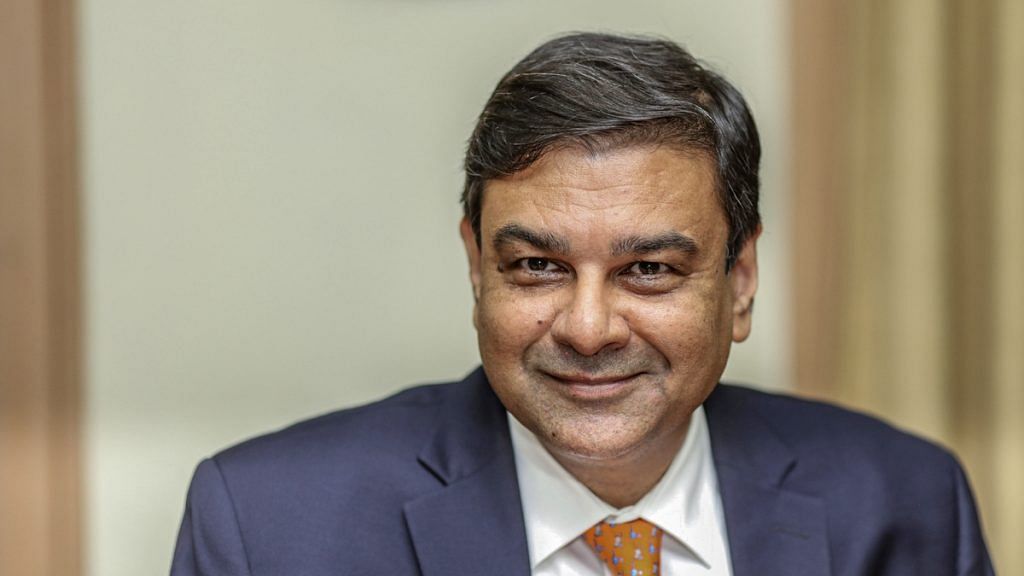New Delhi: In September 2017, Reserve Bank of India Governor Urjit Patel wrote to then Finance Minister Arun Jaitley that allowing a scheme like the electoral bonds is fraught with considerable risk, would damage the reputation of the central bank irreparably and also warned him that it would undo the gains from demonetisation.
According to the letter accessed by RTI activist Anjali Bharadwaj, Patel had raised several concerns about the government’s decision to allow a scheduled bank to issue currency-like instruments, thereby taking away the exclusive authority of the RBI to perform this role.
“You would kindly agree that allowing any other entity other than the central bank to issue bearer bonds, which are currency like instruments, is fraught with considerable risk and unprecedented even with conditions applicable to electoral bonds,” Patel said in the letter.
“Such exception will have adverse impact on public perception about the Scheme, as also the credibility of India’s financial system in general and the central bank in particular.”
Patel had also said the scheme could be misused through shell companies. “This can subject the RBI to a serious reputational risk of facilitating money laundering transactions.”
The proposal of digital electoral bonds
While, in principle, the idea of cleansing the system of political funding is welcome and the idea of electoral bonds (EBs) is novel, the RBI is of the view that “issuing EBs in digital form will be a superior method”, Patel said.
“Apart from avoiding the use of EBs for money laundering, this arrangement will be more secure and will also reduce the cost as the need for printing security features is obviated,” the letter said. “EBs issued in demat form will be akin to a central bank-floated ‘digital currency’ that would obviate the need for any other entity to issue such instructions.”
Concluding this letter, Patel again underscored the need for the RBI to be “the exclusive authorised authority to issue EBs”.
“We strongly believe that the digital form of EBs will mitigate risks and help to put the reform agenda of the Government on a firm footing.”
While Jaitley did not respond to the letter himself, then finance secretary Subhash Garg wrote back to Patel summarily rejecting the proposal of digital electoral bonds in a letter dated 21 September.
Doing so, Garg said, would “take away a key feature of the Scheme to protect the identity of the donor from the political parties”.
To Patel’s concerns regarding allowing a scheduled bank to issue electoral bonds apart from the RBI, Garg said this was only an “enabling provision” and “it is only RBI which will issue bonds on commencement of the Scheme”.
Also read: No clarity on legality of electoral bonds as SC couldn’t decide case before assembly polls
‘Diluting the authority of RBI’
Patel then responded to Garg’s letter with another letter addressed to Jaitley on 27 September, 2017.
He informed Jaitley that the RBI’s Committee of the Central Board met 27 September to discuss the issue of EBs, and then went on to list the various concerns flagged at the meeting.
First, Patel re-emphasised that issuing currency is a monopoly of a central authority.
“It is a matter of concern that the central government amended Section 31 of the RBI Act despite the Bank’s suggestion to the contrary, thereby diluting the monopoly of the central bank. The electoral bonds, irrespective of any fetters attached to them, would be like a currency note.”
He further said that the issuance of electoral bonds in scrip form as opposed to the digital form would leave no trail of transactions, and “can render the scheme to abuse of unscrupulous elements”.
“If RBI agrees to issue EBs in scrip form, it will be accused of acquiescing in the process in spite of the risk that it would almost inevitably result in money laundering. This would seriously dent the image and reputation of the RBI,” he warned again.
EBs in scrip form would also be exposed to the risk of forgery and cross-border counterfeiting, he said.
Defeating the purpose of demonetisation
Patel then went on to argue that the scheme in its current format would undo the successes of demonetisation.
“One of the major positives arising out of the demonetisation was that cash lying outside the formal economy has been brought into the banking system…The RBI too suffered some damage to its reputation initially, but in the end it was seen as a measure to cooperate with the Government in its fight against black money,” he said.
The operationalisation of the EB scheme “would expose the government and the RBI to adverse public criticism and consequent loss of goodwill for both. It would be perceived that the sufferings of the public (during demonetisation) have been brought to naught by this one move.”
While several initiatives of the government such as demonetisation, fight against NPAs, auction of natural resources, etc. have been seen as measures to fight corruption and black money, the EB scheme would give the impression, albeit falsely, that the government was facilitating and enabling the use of black money, he said.
The Committee of the Central Board in its fiduciary capacity would advise the government to reconsider the scheme in its proposed form.
However, Jaitley again did not respond to the detailed letter by Patel. Responding on his behalf, Garg once again dismissed the concerns raised by the RBI and said while the government has duly considered the RBI’s inputs, it is the “final decision” of the government to go ahead with EBs in physical form.
Also read: NRC after Citizenship Bill — Swapan Dasgupta, listen to Urjit Patel on banks — Ashok Desai
